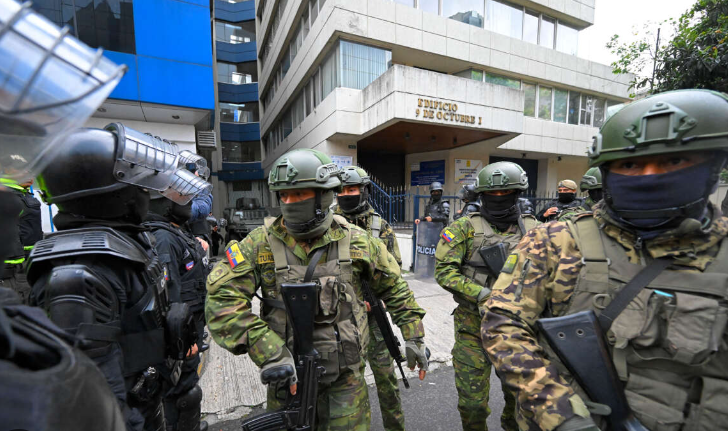In a dramatic escalation of tensions between Ecuador and Mexico, Ecuador’s raid on the Mexican embassy in Quito has ignited a diplomatic firestorm, drawing condemnation and sparking legal action on the international stage.
The raid, conducted on April 5th, targeted the former Vice-President of Ecuador, Jorge David Glas, who had sought refuge within the embassy’s walls. The move, ostensibly aimed at apprehending Glas, was justified by Ecuadorian President Daniel Noboa as part of his anti-corruption campaign, a cornerstone of his administration.
However, the raid stands in clear violation of the Vienna Convention on Diplomatic Relations, a fundamental framework governing diplomatic conduct between nations. Ecuador’s breach of this convention has drawn sharp criticism, with Mexico denouncing the action as a violation of its sovereignty.
Tensions between the two nations had been simmering since Glas sought asylum in the Mexican embassy following his conviction for corruption, which he and former President Rafael Correa claim to be politically motivated. Mexico’s decision to grant asylum further exacerbated the situation, leading to Ecuador’s declaration of Mexico’s Ambassador as persona non grata.
The diplomatic crisis comes at a time when President Noboa is facing mounting domestic challenges, particularly escalating gang violence. Despite his pledges to combat corruption and restore order, Ecuador has been plagued by a wave of violence, with recent statistics painting a grim picture of over 100 murders during the Easter weekend alone.
Critics argue that Noboa’s aggressive stance towards Mexico is a diversionary tactic, aimed at shoring up his political support amidst growing discontent over his handling of internal security issues. With an upcoming referendum on granting increased security powers to the government, the administration faces mounting pressure to address the root causes of violence within the confines of domestic and international law.
As Mexico seeks recourse through legal channels, including a petition to expel Ecuador from the UN, the incident underscores the urgent need for Ecuador to address its internal challenges while upholding the principles of international diplomacy. Anything short of this risks further isolating Ecuador on the global stage and exacerbating its already precarious domestic situation.
